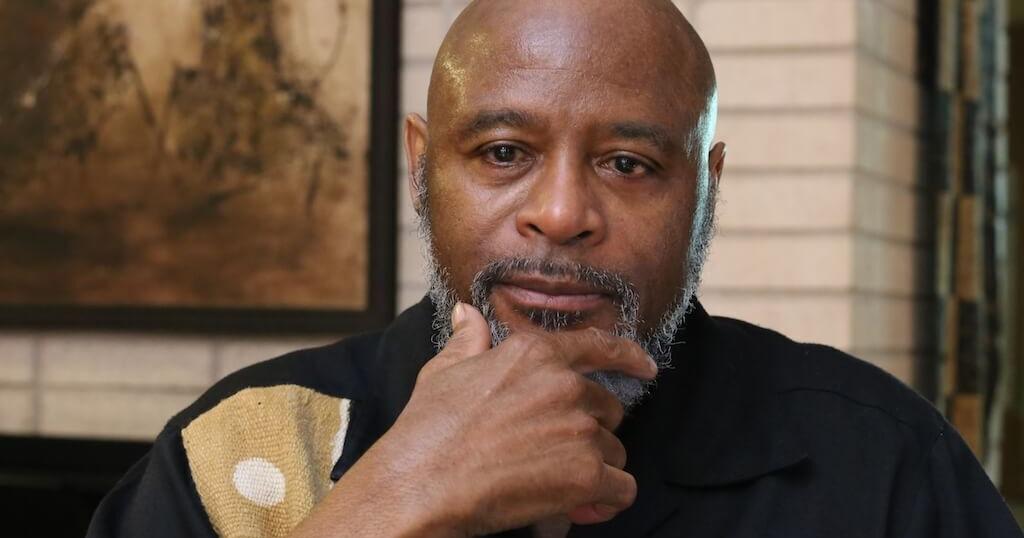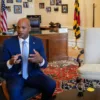
On June 5, Dr. Cornel West announced his campaign for president.
In a short video tweet, West declared, “In these bleak times, I have decided to run for truth and justice.” Elaborating, he explained, “I care whether you have access to a job with a living wage, decent housing, women having control over their bodies, health care for all, deescalating the destruction of the planet, the destruction of American democracy.”
West’s campaign offers an opportunity for serious discussions about the U.S. empire: its socioeconomic conditions, racial oppression, deteriorating herrevolk democracy, and the politics needed to transform it.
The corporate media generally, some progressive, and a few radical venues received West’s announcement with scorn, albeit for different reasons. Commentators for corporate and progressive outlets generally charged he would be a “spoiler” who would take votes from President Joe Biden and facilitate the election of a fascist, either Trump or DeSantis.
Spurious allegation-filled invectives by Ja’han Jones, a ReidOut (MSNBC) blogger, and Joan Walsh of the Nation — “Cornel West’s ‘leftist’ presidential bid has right-wing DNA” and “Cornel West Should Not be Running for President” — are illustrative. The Jacobin’s Ben Burgis’ “Cornel West Should Challenge Biden in the Democratic Primaries” provides an effective retort to them.
Perhaps, the harshest critique from the left is Joseph Kishore’s “Cornel West’s campaign for U.S. president: a pragmatic and bankrupt muddle.” Erin McCarley’s, Counterpunch article, “Instead of Trashing Cornel West, Here’s What Democrats Could do if they Cared about Social and Economic Justice,” offers another necessary alternative to Jones, Walsh and Kishore.
Black media, mainstream and radical, either treated West’s announcement as a straight news story or expressed admiration for his history as a militant and radical scholar activist. Through an interview with Margret Kimberley, the important radical Black website, The Black Agenda Report provided him a platform to promote his candidacy.
West implicitly replied to much of the criticism by switching his candidacy from the disturbing People’s Party to the Green Party.
West’s campaign for president poses serious questions for the Black Liberation movement and the White progressives and radicals.
The focus on West’s political errors, shortcomings and contradictions, whether he should run as a third-party candidate or in the Democratic Party’s primary, or on his campaign’s possible impact on Biden’s re-election evades the central issues.
Perhaps, the most important question is, is now the time for progressives and radicals to break from the Democratic Party and build electoral apparatuses that genuinely work to transform U.S. society?
Progressives and radicals are not likely to capture the Democratic Party as the fascists have the Republican Party. The Democratic Party will probably remain a neoliberal entity that promotes a more liberal form of financialized global racial capitalism and imperialism for the foreseeable future. Therefore, for me, the critical question is, could West’s campaign for president of the U.S. empire be a vehicle that advances Black liberation and the transformation of the U.S.?
Of all the candidates who have run for president of the U.S. empire, my politics are more closely aligned with those of Dr. West. We share much, yet there are profound differences in ideology, strategy and tactics.
At times, like in his announcement and on his campaign website, his universalism eclipses his willingness to highlight and advocate Black folk’s agenda. Reparations, which he supports, are not included in either. My politics compel me to always put reparations front and center and not consign it to policy discussions only among Black people. Does he support the Movement 4 Black Live’s Breathe Act?
I believe the African American people must strengthen, build, and control our own independent institutions. And principally among them is the need to organize autonomous political decision-making organs — political parties and people’s assemblies. It’s time to resurrect the National Black Independent Political Party but this time constructed on the foundation of local parties like the Baltimore-based Ujima People’s Progress Party.
Brother West doesn’t share that dream. His political vision is not premised on African American self-determination. Nonetheless, he is the only candidate who would abolish racial oppression and dismantle predatory capitalism and U.S. imperialism, if he could. The potential value of his campaign turns on that possibly, if he could.
The truth is he can’t win; no third-party candidate can win the U.S. presidency. Therefore, West’s pursuit of the U.S. presidency is quixotic, unless his goal is to build a movement to eliminate the barriers that restrict winning candidates to the two capitalist parties.
The entirety of the U.S. political infrastructure is structured to preclude a multi-party system in which all of the electorate have equal access to the ballot and the popular vote determines who is elected.
The PEW Research Center reports the U.S. ranks 31st in voter turnout. The U.S. political system is characterized by a constellation of undemocratic regulations and procedures: at-large elections, winner-take-all outcomes, racial gerrymandering, corporate cash, and voter suppression and the Electoral College. Democracy has never been the American way.
In addition to mapping proposals to abolish racial oppression and the universalist programs on his campaign site, the greatest value of a West campaign would be his advocacy of specific policies to democratize the U.S. electoral system.
Can West build a movement for specific policies to abolish the electoral college, overturn Citizen’s United, and enact proportional voting?


